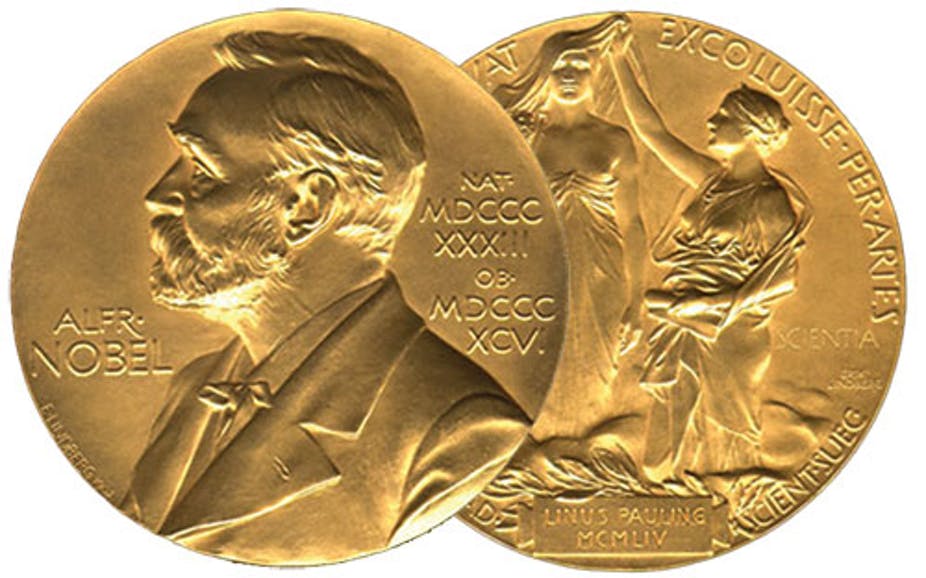Let’s talk about science…
 I recently attended the Palmaz Award dinner as a guest of a local biotech company. This year’s honoree was local scientist, and recent Nobel Prize recipient, Dr. W.E. Moerner. During his acceptance speech, he described the beautiful image on the back of his Nobel medal. The image (above) is of two women. One is Science; the other, Nature. In the scene depicted, Science is lifting the veil of nature.
I recently attended the Palmaz Award dinner as a guest of a local biotech company. This year’s honoree was local scientist, and recent Nobel Prize recipient, Dr. W.E. Moerner. During his acceptance speech, he described the beautiful image on the back of his Nobel medal. The image (above) is of two women. One is Science; the other, Nature. In the scene depicted, Science is lifting the veil of nature.
This is the personification of the ideals of science. I was incredibly moved by this metaphor, until I was reminded of the title of his thesisa¦. “Vibrational Relaxation Dynamics of an IR-Laser-Excited Molecular Impurity Mode in Alkali Halide Lattices”. I know what most of those words mean, but definitely not when they are combined in that order. I would like to use this as an example of how many scientists are failing.
The idea behind science lifting the veil of nature is that science should be an effort to shed light on the mysteries of nature, so that everyone can take advantage. Dr. Moerner designed a microscope that can detect a single molecule, but the language in which scientists communicate often excludes everyone outside of their profession. As a fourth year PhD student, I have seen this play out time and time again.
This type of inaccessible language is not unique to the brilliant work of Dr. Moerner. I find that when I read science, I often have to read an article multiple times before understanding it, and I usually have to have Wikipedia open to explain all the words I don’t understand. In light of this, I suggest a new metaphor for science and nature. Instead of science lifting the veil of nature, science will climb into nature’s blanket fort and post a keep out sign, so that only scientists can learn more about nature.
The situation has gotten so bad that many people (scientists and non-scientists alike) assume that this scientific insulation is normal and unavoidable. I often hear scientists dismiss the idea of trying to explain their work to someone outside their field. Equally troubling, when I tell strangers I am a scientist the normal response is that what I do must be “too complicated to describe.” This frightens me, because if our community cannot understand science, we cannot truly value it either.
The “Beyond The Bench” series features articles written by students and postdoctoral fellows at the Graduate School of Biomedical Sciences at The University of Texas Health Science Center San Antonio.
